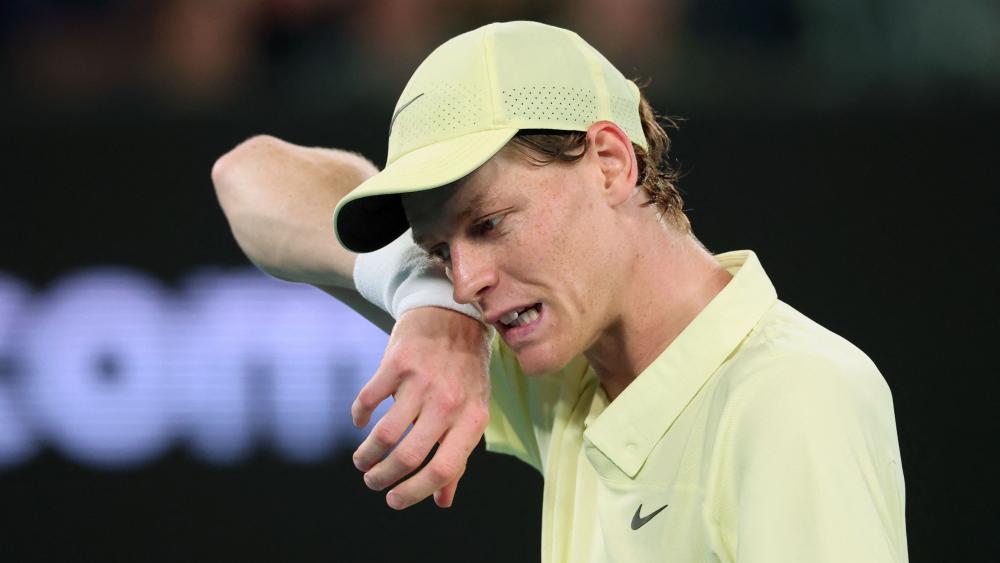
Jannik Sinner has to take a three-month break. © APA/afp / DAVID GRAY
No special treatment: This is how the Sinner case really went
The ban on Jannik Sinner is causing a stir. Those who believe the Sextner is innocent think it is excessive. Those who believe Sinner is guilty think he received special treatment. We explain why everything took its course.
18. February 2025
From:
Leo Holzknecht
The first important premise arises from the ruling of the World Anti-Doping Agency (WADA): “WADA recognizes that Sinner had no intention of cheating, that the clostebol had no performance-enhancing benefit and that it entered his body without his knowledge due to the negligence of members of his team. However, according to the Code and the case law of the CAS, an athlete is liable for the negligence of those around him.” Sinner has therefore not doped and was also not He was not banned for doping, but because of the negligent actions of his team.
Many are now asking: Why is there a settlement in such a case and not a unilateral conviction? This point is enshrined in Chapter 10.8.2 of the WADA Code. It states that a suspension can be reduced if an athlete admits a violation of the Code. In Sinner's case, as described in the above-mentioned ruling, this concerns the negligence of his team. "I have always accepted that I am responsible for my team and know that WADA's strict rules are an important protection for the sport I love," Sinner said in a statement.
That is why WADA is satisfied
But how did this comparison come about in the first place, after WADA had spoken of a ban of one to two years in September when it challenged the acquittal by the International Tennis Integrity Agency (ITIA)? Those familiar with the scene agree: WADA has realised in recent months that the prospects of success were slim. Especially since it also acknowledged the facts that Sinner was neither doping nor had an advantage. There was a chance that the International Court of Arbitration for Sport (CAS) would completely acquit Sinner. WADA therefore risked losing face, especially since it had never challenged an ITIA verdict before.Another point: After re-examining the facts, WADA considered a one-year ban to be excessively long, the organization’s spokesman, James Fitzgerald, told The print.
Jannik Sinner has had difficult times. © APA/afp / ADRIAN DENNIS
Because of this, WADA has now made Sinner this "offer", as the South Tyrolean calls it in his statement. Why did the 23-year-old accept it? Well, for almost a year he has lived and played with the dark cloud over his head - not knowing whether or for how long he would be taken out of circulation. Sinner's desire to finally close this chapter was great. Even if the hearing at CAS could have ended in an acquittal, the risk was high. A decision would probably not have been made until September.
That is why Sinner agreed
Even Sinner, who is so mentally strong, would hardly have been able to cope with playing another whole season with this uncertainty. The timing of the ban was also "convenient" for him, which is why he chose the lesser of two evils. Sinner still lost 1600 points and had to accept financial damages amounting to millions. Meanwhile, WADA scored a symbolic victory with the three-month ban.Iga Swiatek was also involved in a doping case. © ANSA / ALI HAIDER
Another point that many Sinner opponents do not understand or do not want to understand: Why was the Sextner not provisionally suspended after the positive tests? Why did the case only become public after many months? Simple: Like Iga Swiatek, the world number one was able to credibly explain within ten days how the clostebol got into his body. So there was no special treatment. What is true, however, is that due to his financial means, Sinner - just like Swiatek - can afford the best specialists. That is why the source of the contamination was found so quickly. The same applies to the lawyers. Less highly ranked players do not have these (hard-earned) resources. Nevertheless, Sinner did not circumvent or even break any rules.
No preference
In conclusion, it can be said that the process that led to this verdict followed the prescribed course. Comparisons with other cases, such as that of Simona Halep, are far-fetched, as the facts are completely different. After analyzing the case, it cannot be denied that Sinner was not given any advantage. Compared to tennis player Marco Bortolotti, who also tested positive for clostebol and was acquitted by the ITIA, the Sextner was hit even harder. The WADA did not file an appeal against Bortolotti.Edit Profile
You have to sign into use the comment function.










Comments (0)